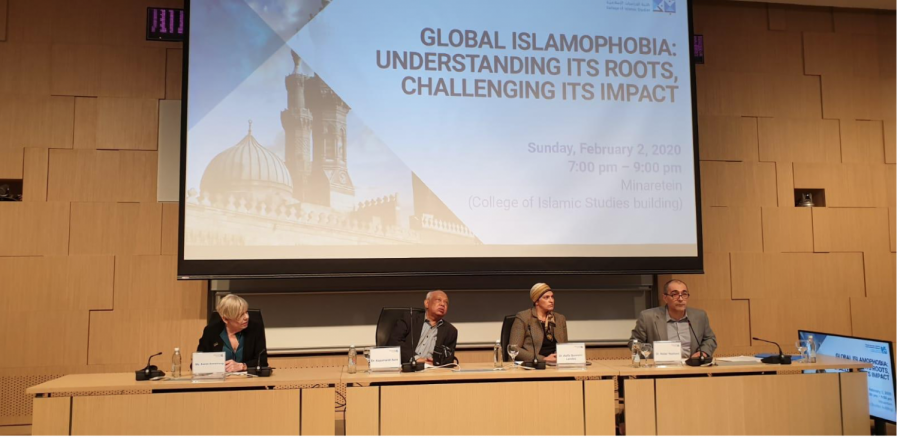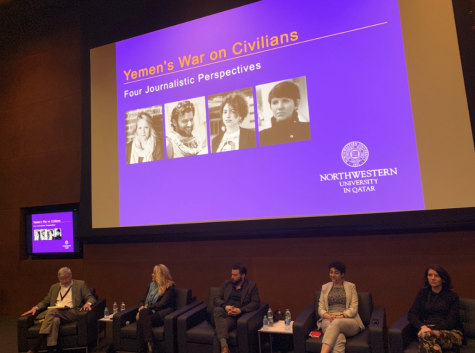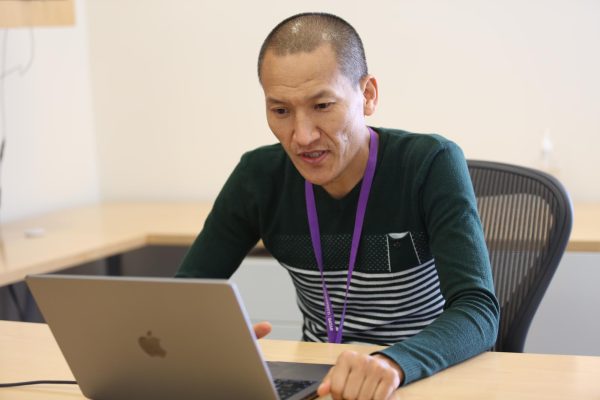Muslims Should Take Steps to Control the Growing Islamophobia, Say Scholars
Panel discussion on “Islamophobia: Understanding Its Roots, Challenging its impact” in HBKU’s College of Islamic Studies on Sunday, Feb 2, 2020
To stop Islamophobia, Muslims should understand its different ways of manifestation and take measures against them, a panel of scholars told an audience of approximately 100 people at HBKU’s College of Islamic Studies in Doha on Sunday.
“Islamophobia is an extreme or an exaggerated fear of hostility toward Islam and Muslims,” said John Esposito, professor of Religion and International Affairs and Islamic Studies at Georgetown University, who joined the panel via a Skype video call. “It leads to social and political discrimination, which are used to rationalize Islamophobia policies, such as persecution and disenfranchisement.”
The event, titled “Global Islamophobia: Understanding Its Roots, Challenging Its Impact” featured five scholars who discussed the causes, ways of manifestation and the probable solutions to Islamophobia across the world.
The panel pointed out that Islamophobia is usually perceived as a problem unique to the West. “When you think about the topic, you think about discrimination against Muslims in France and in the United States or about anti-immigration sentiments in different parts of Europe,” said Nader Hashemi, director of Center for Middle East Studies at the University of Denver.
However, Islamophobia has accelerated in recent times and is manifested in different ways around the world. “Three largest populations in our world today: China, India and the United States of America, are, to varying degrees, hostile toward Muslims,” Hashemi said. Examples of such hostilities are treatment of Uighur Muslims in China, the introduction of an “anti-Muslim” actin India and the so-called Muslim travel ban in the United States.
Islamophobia, in the United States “is given legitimacy in the name of protecting public safety,” said Asifa Quraishi-Landes, professor of law at the University of Wisconsin-Madison. She said that national security reasons usually are used to justify the Muslim ban.
Around the world, there are differing roots and historical forces regarding Islamophobia and the persecution of Muslims, said British author and commentator Karen Armstrong. While the political ideology of Communism is the reason behind Islamophobia in China, identity politics and political gain during elections are the primary reasons for Muslim persecution in India, she said.
While the reasons behind Islamophobia might be different in different places, all participants in the panel agreed that Muslims can and address and confront it. Panelists shared different probable solutions with the audience. Some of those included solving internal problems with peace, respecting everyone’s culture and helping out other minorities in times of need.
“If we stand up against injustice, not just when it affects Muslims, but especially when it does not affect Muslims, then Muslims will be known for Justice,” said Landes.
The panel discussion resonated with the audience. “Islamophobia is a burning issue,” said Mohammad Ershadur Rahaman, 27, an M.A. student at Hamad Bin Khalifa University. “This event helped me understand the primary reasons behind its growth and how we can overcome it.”












